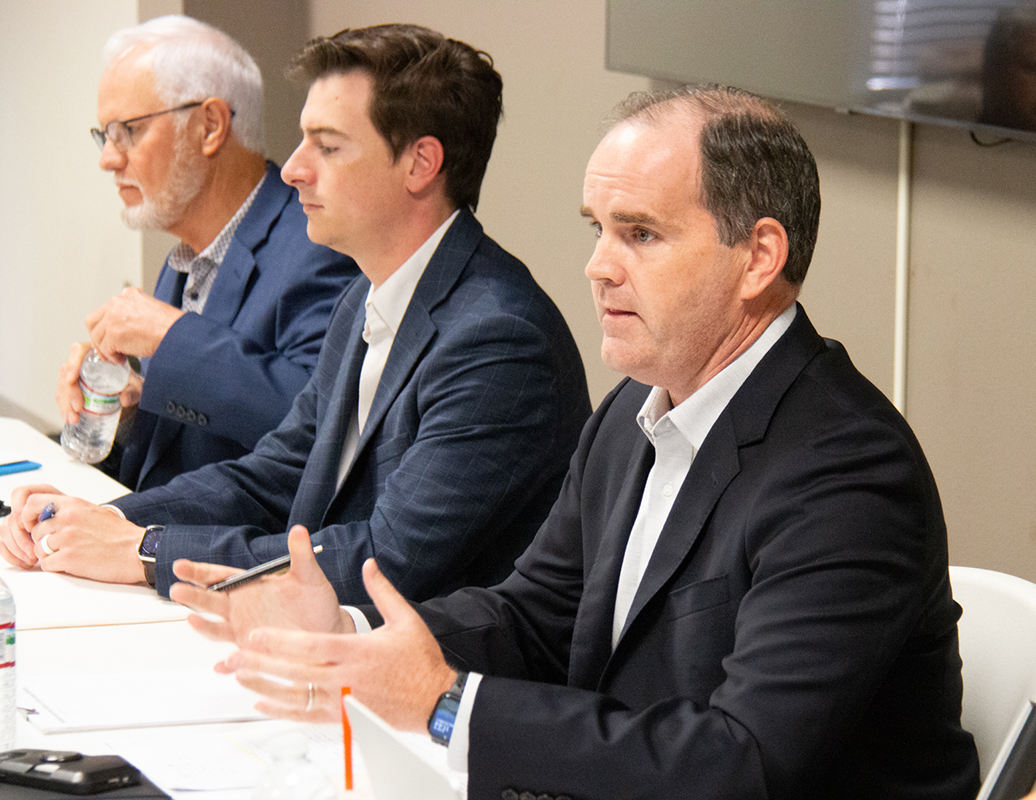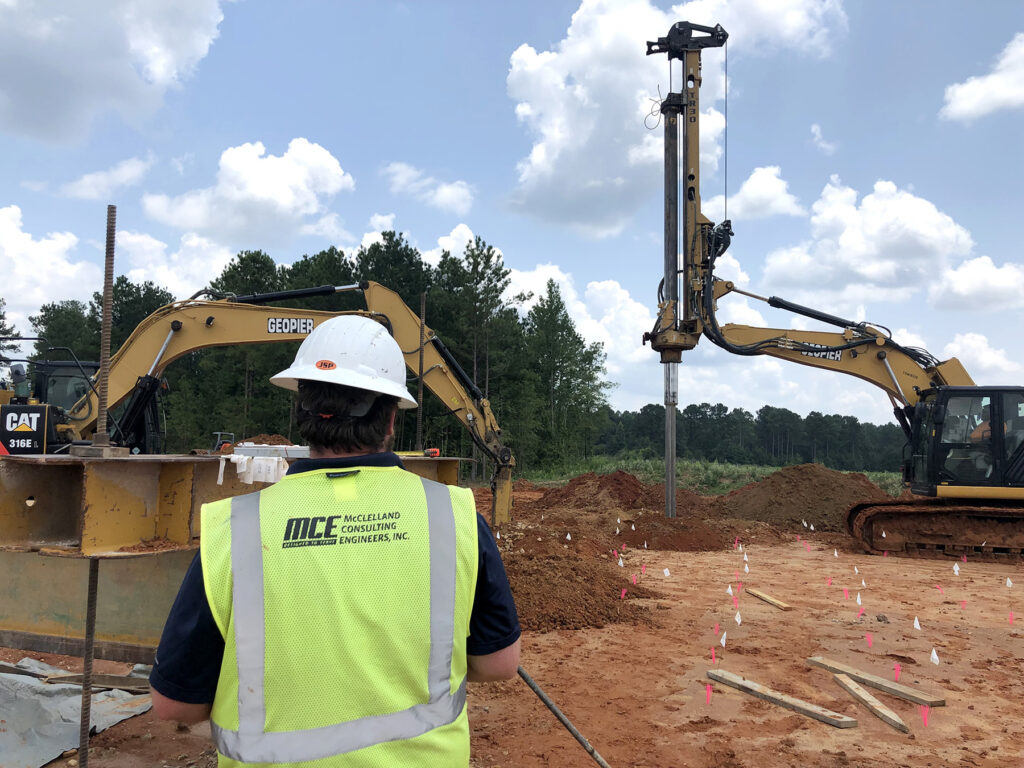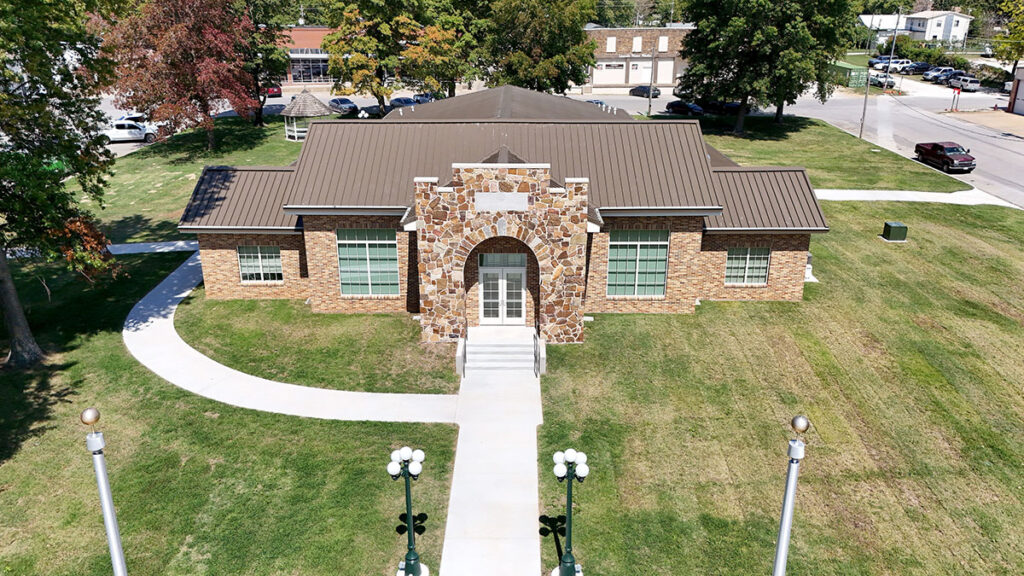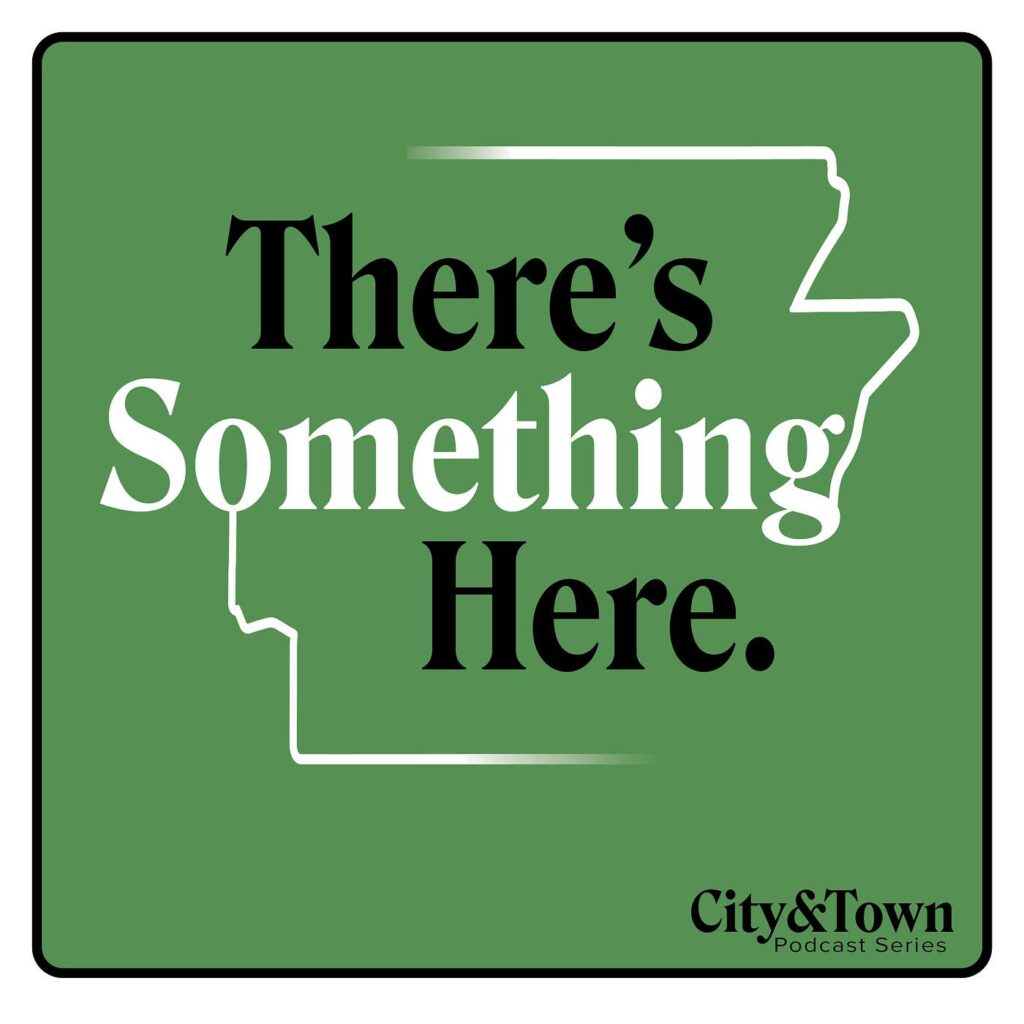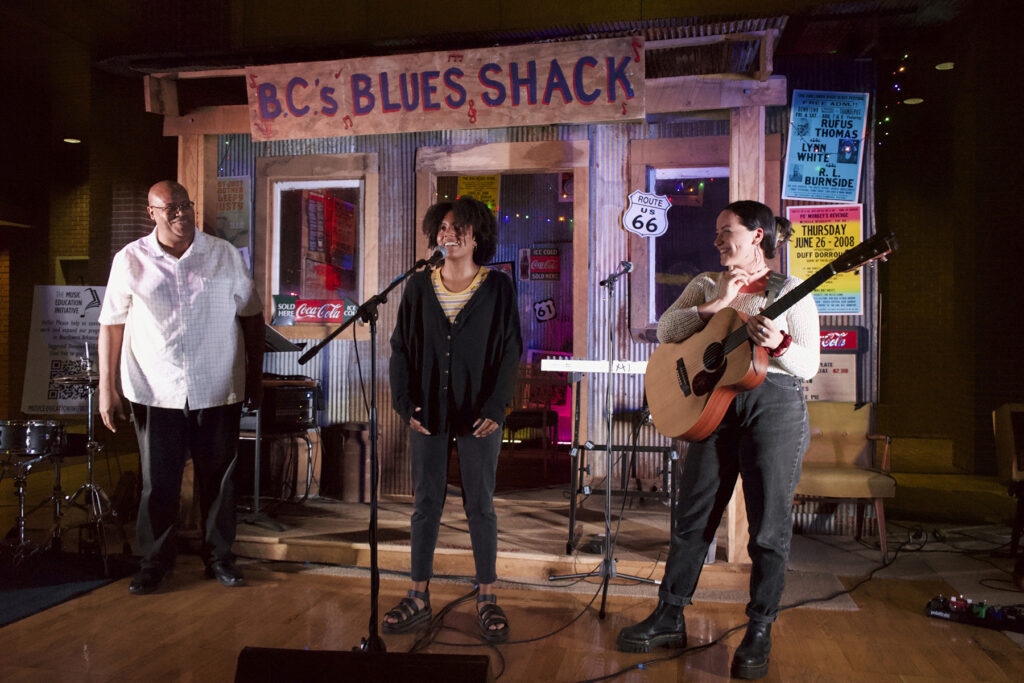From late September through early October, the Arkansas Municipal League’s legislative advocacy team held a series of roundtables in six cities across the state, where they invited mayors, city managers, city administrators and state legislators from local districts to discuss the League’s legislative priorities ahead of the 2025 General Session of the Arkansas Legislature. Forrest City, Fort Smith, Harrison, Hope, Monticello and Springdale each hosted a stop on the tour, and turnout was strong, with more than 120 cities and towns represented around the table and with more than 20 state legislators joining the conversation.
A July meeting of the Northeast Arkansas Mayors Caucus was the impetus for holding the discussions, League General Counsel and Legislative Director John Wilkerson said. The caucus invited League staff to Paragould to share our legislative priorities with local mayors and legislators, and the conversation was very productive, Wilkerson said. “We realized the value of all sitting down together, breaking bread together, and talking about what’s important to Arkansans.”
During the League’s Annual Planning Meeting in August, the executive committee arranged the resolutions passed by the membership at the 90th Convention in order of priority, and those top issues served as the starting point of the roundtable discussions.
First on the list was the resolution to add “retail” to the list of economic development projects cities may invest in under Article 12, Section 5 of the state constitution. That list includes projects such as industrial facilities, recycling facilities, job training facilities and more. In 2019 state lawmakers added “facilities for the retail sale of goods” to the enacting legislation at A.C.A. § 14-176-102 but did not, in turn, add it to Article 12, Section 5 of the constitution. The legislature could make that change with a three-fourths vote.
“The one thing that’s not in here is retail,” Wilkerson said. “For a lot of you across the state, retail is probably the number one job creator in your city or town. And so, we thought if this were really trying to grow jobs, then we need to focus on maybe finding a way that we can add retail to foster this economic development.”
The League’s Blake Gary asked the group to consider the potential benefit to the vast areas of Arkansas outside the more economically robust population hubs. “There’s a lot of rural communities out there that don’t even have a Sonic,” Gary said. “I also know we have a lot of food deserts in the state.” The idea of being able to incentivize a grocery store drew appreciative nods from mayors like Zola Hudson of Altheimer, who has been working with groups like the Arkansas Hunger Relief Alliance for several years to find a way to bring fresh, healthy food to her Delta community.
Another priority resolution offered by the League proposes taking a portion of the cities’ sales tax money kept by the Department of Finance and Administration as a processing fee and using it to fund water projects. Starting in 1977, the state has kept 3% of all local option sales taxes cities and counties collect each year as a processing fee. That now amounts to approximately $31 million per year in local sales taxes that aren’t returned to cities, towns and counties, Wilkerson said.
The League proposes putting half of the amount collected by DFA toward local water system projects through the Arkansas Natural Resources Commission. While it wouldn’t be enough to solve the state’s estimated $9 billion in water/wastewater system needs, it would be a great start and it has broad support among the League’s membership. “If we don’t take care of water, nothing else matters,” Springdale Mayor Doug Sprouse said during the September 6 meeting in his city.
Another key issue discussed that will likely appear before the legislature in 2025 includes the ongoing study of the complicated funding mechanisms of the state’s district court system, including the potential to ease cities’ share of that burden. The League would like to see the system funded fully by the state, and Rep. Jeff Wardlaw (Dist. 94) agreed. “I’m going speak, not as chairman of Legislative Council [Committee] but as Jeff Wardlaw, and my support would be to fund it completely. And not only fund it completely, but fund the clerks as well. That’s the number one complaint I’m getting from all the district judges in my district.”
For Wilkerson, the legislative roundtables have been a great success. “They exceeded my expectations, and I was thrilled with the turnout.” He was especially pleased to have the opportunity to engage with leaders from small cities and towns who aren’t necessarily regulars at the League’s Little Rock meetings but are working hard on these issues back home. “To put faces with names and voices—or faces with text messages—was really amazing.”
To review these and other resolutions, see the League’s 2024-2025 Policies and Goals, included as an insert in this issue and available on the Publications page of the League’s website, www.armunileague.org/publications.

